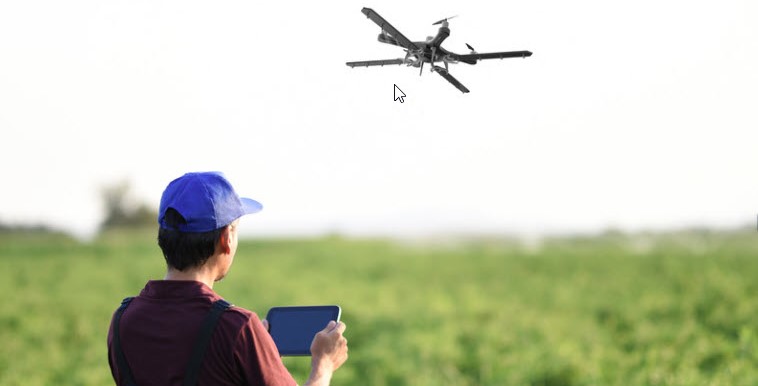Drone Use Guidelines

TRU drone (UAV) pilot requirements
- All commercial and non-research drone filming requests should be submitted at least 10 business days in advance.
- All TRU research-related drone use requests should be submitted at least five days in advance.
- Pilots are required to always have the following documents with them:
- Copy of a valid Transport Canada Drone Pilot Certificate or Special Flight Operations Certificate (if required)
- If you are flying a drone that is less than 250 grams, you do not need to register the drone or get a drone pilot certificate. ALL drones over 250 grams MUST be registered.
- Visit the Transport Canada website to learn how to obtain a certificate and how to register your drone.
- Certificate of insurance (proof of liability insurance coverage).
- Picture identification
- Copy of the drone system operating limitations.
TRU drone (UAV) pilot guidelines
- There are two categories of drone operation: basic and advanced. Each one has a different set of rules drone pilots must follow. Visit the Transport Canada website for more information.
- Only drones that are the property of Thompson Rivers University or those that are formally leased/loaned to the university under contract with another company may be used for TRU-related research/projects.
- Pilots cannot operate a drone within eight hours of consuming alcohol.
- Fly only during daylight and in good weather (e.g., not in strong winds or rain, fog, extreme temperatures)
- It is highly recommended that the pilot is accompanied by at least one visual observer.
- Pilots must ensure they're properly trained, maintain the drone per manufacturer specs and check it for safety before each use.
- Privately owned drones cannot be covered under the university’s insurance, nor can they be used for university research purposes.
- All individuals piloting TRU-owned drones off-campus must:
- Complete a drone use request form.
- Request a Certificate of Insurance (COI) through Risk Management Services.
- Only faculty or staff can request COIs, and they can also request on behalf of students in their department.
- To pilot the aircraft, students must be registered for the semester they plan to fly and provide a designated supervisor on the registration/insurance form.
- When flying over private property, pilots must obtain written permission from the landowner and adhere to any specified restrictions (e.g., distance from domestic animals).
- Pilots must obtain written permission from the owner(s) of the property on which the drone intends to take off/launch from and/or land/recover on.
- Pilots are also responsible for being aware of any privacy or trespassing laws and bylaws that may apply to their research/projects.
On campus:
- If flying over private property on the TRU campus, pilots must have written permission from the landowner and note any restrictions (e.g., distance from domestic animals).
- The following are considered private residences on campus, and approval must be obtained from the following:
- Creston House — Phil Mason, CML Properties phil.mason@cmlproperties.ca
- Rockcliffe — Phil Mason, CML Properties phil.mason@cmlproperties.ca
- Liberty Pointe — Rhonda Tomlin, Kelson Group rtomlin@kelsongroup.com
- Legacy Square — Rhonda Tomlin, Kelson Group rtomlin@kelsongroup.com
- The following are considered private residences on campus, and approval must be obtained from the following:
